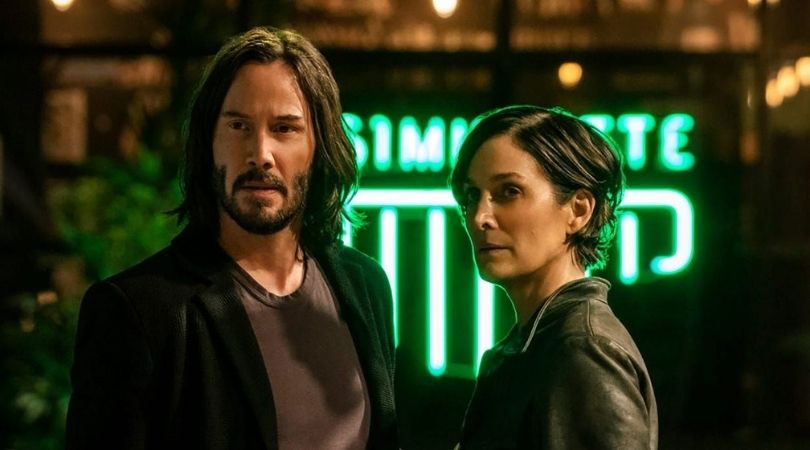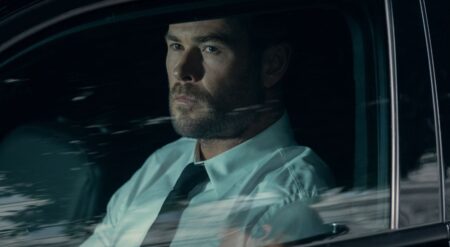
The Matrix redefined action, ushering a blueprint for American action films with the Wachowskis solidifying their place in cinema greatness. In the years since, there have been attempts to capture the philosophical, radical, and action-heavy storytelling that we got in 1999 and unfortunately, nothing quite hits. And that includes The Matrix Resurrections. A film directed and co-written film by Lana Wachowski (with David Mitchell and Aleksandar Hemon), this marks the fourth film in the franchise (if you don’t count Animatrix) and a return to the screen for Keanu Reeves and Carrie-Anne Moss. Additionally, the film brings new faces to the cast with Jessica Henwick, Yahya Abdul-Mateen II, Jonathan Groff, and Neil Patrick Harris to round out the cast.
The Matrix Resurrections is a true sequel, taking place after the events of the last films in a world changed, and yet the same in some ways. In it, Mr. Anderson is a game developer struggling to find out if his reality is, well real, or if the game he designed is a reflection of his past. With panic attacks and growing confusion, Mr. Anderson has to make the choice to follow the white rabbit once again, only this time the rabbit is Bugs, and she’s a force to be reckoned with. Growing on stories of Neo, breaking him from the construct becomes only one step in a long quest to take on the Matrix again, which has become stronger, more dangerous, and more real than ever before.
To be completely honest, I’ve been waiting for this film. Not just because I’ve been a fan the franchise, but because Neo and Trinity as a pair have been one of the best romances, doomed although it may be, in science fiction and action. So when the announcement that we would get both characters back with their original actors, I was all the way in. The Matrix Resurrections delivers on this, and it does so in spades, so much so that Trinity’s impact on the mythos of the series is increased to absolute heights. The relationship, the romance, and the way the two reach across realities is the best element of The Matrix Resurrections.
In addition to a great romance and unbeatable chemistry between Reeves and Moss, Harris’ character that plays a fairly large role in the film is charismatic to a level that keeps you in your place. His charm and his wit are delivered in monologues that freeze Neo where he stands, with just the right amount of menacing that only Harris can pull off. Additionally, Hennwick and Abdul-Mateen are great additions to the franchise. However, Hennwick is able to create a mark on the franchise while Abdul-Mateen has the unfortunate reality of having to share a name with one of the film’s most iconic characters: Morpheus. On his own, Abdul-Mateen is great on screen, but with constant reminders of Laurance Fishburne put in the audience’s face throughout the film, he’s unable to find his own footing.
Sadly, The Matrix Resurrections also can’t find its action footing. Gone are the highly choreographed and stunning action sequences that were carefully crafted from legend Yuen Woo-ping, replaced with guns, excessive force pushes, and relentless editing that makes the film feel more like a generic American action foray than a film in the genre-defining series. While there is at least one great fight sequence in a recreation of the first film’s dojo, the rest of the film feels like it’s sleepwalking through the action or overcompensating with unrestrained guns to somehow be “bigger and badder” than any other film in the franchise—like we see commented on in the film’s first act.
And this is where my issues with The Matrix Resurrections come to a head. The action and what that action is reflecting on. In the first act of the film, we get a meta exploration of how legacies of franchises can be co-opted by corporations and churned out under force in the name of money. In fact, the first act of the film feels like what the creative meetings of this film were probably like, with Lana Wachowski looking at her beloved franchise, knowing that she needed to be involved or the studio would reboot it without her and her sister (who serves as a producer). Obligation is the name of the game, and the result is a film that is just fine. It’s a film that outlines exactly why it got made and then acts on every absurdity that was framed as a bad idea in the first act. This leaves me asking, is making a film that feels phoned-in somehow elevated since Wachowski mapped out her plans in the film itself? And, I don’t know the answer.
What I do know is that at its heart the Matrix Resurrections is a film about the legacies we create with our art, how they change over time, how they become distorted, and how the place where choice and destiny meet is the thinnest line that exists. I wouldn’t say that this film undoes anything that the rest of the franchise did, it simply delivers on it. It gives us our iconic couple. It investigates the issues with choosing the red pill when it’s really the only choice you have. And it uses emotion and investment in the franchise to push any and all momentum the story has—a concept that drives this iteration of the Matrix our characters are fighting against. It’s not about logic, it’s about what you feel. Ultimately though, Wachowski does all this with a film that is just fine and exists because it has to—because she was destined to bring it into existence, and it was the only choice she had.
If The Matrix Resurrections does anything, it solidifies the genus and status of the first film in the franchise. With repeated callbacks both explicit and “hidden”, the power of the first film radiates through this one, but with so many scenes from 1999 being played in 2021, it left me wanting to go back to it, and not continue my 2-hour and 28-minute journey. There is humor and fun, and nostalgia for sure, but there is also a brutal self-awareness that makes me want to handwrite a letter to WB asking “why?” So instead of good or great, it’s all just fine.
The Matrix Resurrections
-
Rating - 5/105/10
TL;DR
If The Matrix Resurrections does anything, it solidifies the genus and status of the first film in the franchise. With repeated callbacks both explicit and “hidden”, the power of the first film radiates through this one, but with so many scenes from 1999 being played in 2021, it left me wanting to go back to it, and not continue my 2-hour and 28-minute journey. There is humor and fun, and nostalgia for sure, but there is also a brutal self-awareness that makes me want to handwrite a letter to WB asking “why?” So instead of good or great, it’s all just fine.






